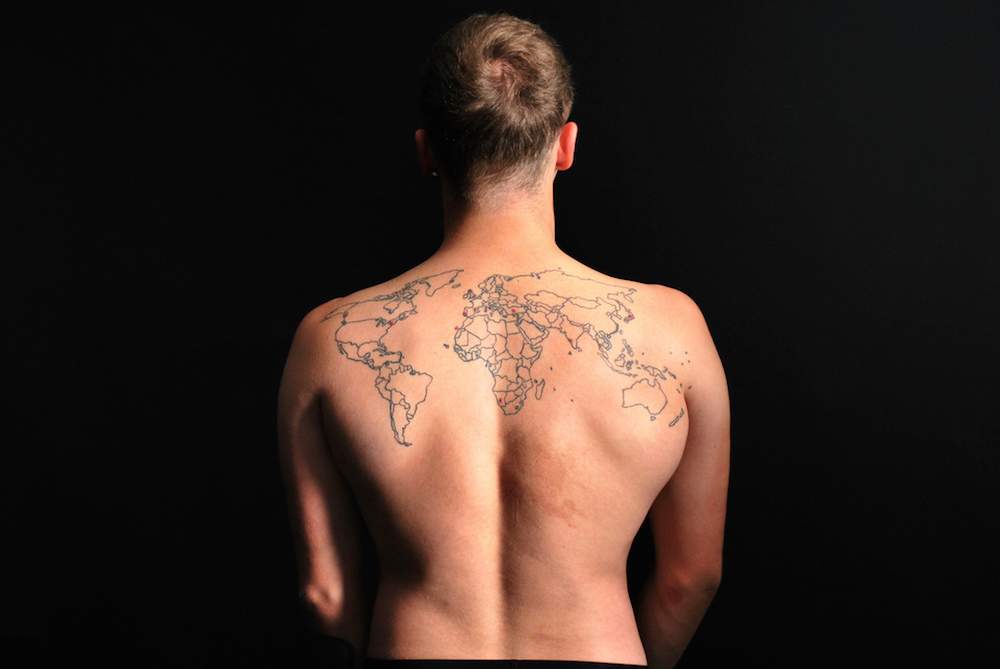Whether or not you have the “luxury” of adequate time off, may I suggest that you find a way to take it anyway? If you only get a week, take it, but don’t take it at warp speed. Here are five reasons that slow-travel is a great idea; if you can, take at least a month!
Speed is stressful and stress is killing us

Stress is a major contributor to disease, as well as mental and physical health disorders. Everyone agrees that we need to reduce it in order to improve quality of life and that tipping the balance away from “work” in favor of “life” in the “work-life balance” is an important goal. Yet, many folks take their frenetic pace on vacation and travel as intensely as they live life at home. This is not healthy!
In order to be restful, and rejuvenating to our souls, time off should be time spent differently. That doesn’t mean you need to spend seven straight days on a beach, but it does mean that, by slowing down, spending your time differently, and intentionally breaking out of your “home patterns” you may find you return rested, even if you’ve still done a lot.
One week is a great start, if that’s all you can manage, but don’t try to cram a train trip across Europe into that one week. Instead, rent an apartment in Marseille or Rome or Barcelona and visit the city markets one day at a time. Two weeks is better, and you’ll be able to begin to feel the rhythms of your new place.
It’s not a contest

You’ve heard it in the common room of every youth hostel, or bellied up to the bar your first night on that island beach in Belize, “Where have you been? How many countries have you visited?… here’s my list,” and then we set out to one-up each other. This is wrong. Travelers, especially avid travelers, tend to act like it’s a contest. Number of countries, cities, amusement parks, national monuments, museums, or wonders of the world visited is not what matters.
We know people who’ve gone “round the world” in three months. We know others who have goals to set foot in every country by a certain date. Still others who pride themselves on visiting the biggest, the best, or the fastest something. None of these goals is wrong, quite the contrary, what a cool idea: to spend a lifetime pursuing a big dream. The problem comes when we begin to measure ourselves, or others, by those lists.
Resist the urge to enter the contest.
Discover the stupid travel arguments we should stop having
Go deep instead of wide

The antidote? Rent a little casita and dig into a place where you don’t speak the language. You’ll be forced to become part of the community, and you won’t be able to go running to the hostel desk for help the next time you get stuck in some way. This is where the real learning often begins.
Going deep instead of wide can change your life.
Be present

I’ll never forget sitting in the laundry room of a campground in Vienna listening to a bus full of young people tick their sites off “the list.” They were three weeks into a three month tour from London to Beijing; not an unimpressive trip. We’d spent the entire three weeks of their trip in Vienna. They couldn’t believe how slow we were going. I couldn’t believe how fast they were going.
I remember thinking, “You guys have taken a lot of picture postcards, but have you actually been anywhere?”
Perhaps the most important life skill to develop is presence, whether we ever leave our hometowns or not. To learn to be in a moment, to experience it, for better or for worse, fully, without distraction is a worthwhile goal.
The three countries and five cities in fourteen days tour is going to make it almost impossible to truly be present in any one moment for very long. Slowing down, trying to “see less” and “be more,” is an excellent way to develop presence in your journey.
Read Long Term Travel as Education and let BootsnAll help you plan your RTW trip
Understanding takes time

Most people would say that one of the reasons they travel is to learn. Learning happens in layers. We learn from the outer onion skin of guidebooks and websites, we go deeper by visiting museums and cultural events. Very few take the time to go even deeper by developing connections with locals, relationships with individuals or roles in communities.
Developing understanding takes time. My sixth grade goddaughter wrote an excellent paper about Guatemala and feels that she “knows” a lot about the place. She knows less than the kids we met in Antigua, who have not written a paper, but whose parents took them south to volunteer in an orphanage over Christmas holiday. Those kids know less still than the foreign children who live half of their lives in the puebla we wintered in. The difference? Time spent.
Read more about travel philosophy:
- Getting Outside the Box: One Family’s Journey to Full Time Travel
- 10 Important Life Lessons You Learn from Living Abroad
- Lessons from Middle Earth: How to Use a Guidebook Without Letting it Ruin Your Trip
- Rethinking Traditional Travel: 7 Tips to Break the Mold
- The Sliver of Light that Reminded Me Why I Love Travel
- Make Meaningful Connections (and Other Indie Travel Values We Love)
Photos by: Oliverjoe, lazyllama , Rawpixel.com , s.h.u.t.t.e.r.b.u.g, Capricorn Studio , Rawpixel.com
